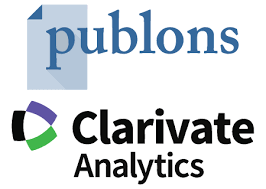Acquiescence to artificial intelligence (AI) by financial accountants
Is it a favorable or disadvantageous behavior for companies?
DOI:
https://doi.org/10.59051/joaf.v15i1.754Keywords:
Intelligence artificielle, modèle d’acceptation de la technologie, comportement comptable, comptabilité, entreprise.Abstract
Purpose: The purpose of this paper is to analyze the challenges of the adoption of artificial intelligence by financial accountants, with a view to circumventing poor cash-flow management, excessive debt, lack of cost control, accounting errors, lack of transparency, delays in preparing financial statements, “non-compliance” with accounting regulations and lack of skills.
Methodology: We conducted an exploratory study of a qualitative nature for an interpretivist epistemological position with the use of an interview guide. Data processing was done using thematic content analysis.
Results: At the end of our analysis, we conclude that AI can be an effective solution to resolve the problems faced by corporate financial accountants.
Originality of the paper: By automating repetitive tasks, detecting errors and fraud, improving financial forecasting, assisting with regulatory compliance and improving efficiency, AI can help financial accountants be more efficient and to make more informed decisions.
Downloads
References
Agbanglanon, S. et Adjanohoun, J. (2020). Continuité pédagogique face à la COVID-19 : effets de l’accompagnement et de la connectivité sur l’acceptation du dispositif de formation à distance de l’ENSETP de Dakar. Revue international des technologies en pédagogie universitaire/International Journal of Technologies in Higher Education, vol. 17, n° 3, pp. 56-69.
Atarodi, S., Berardi, A. M. et Toniolo, A.-M. (2019). Le modèle d’acceptation des technologies depuis 1986 : 30 ans de développement. Psychologie du travail et des organisations, Elsevier Mason, vol. 25, n° 3, pp. 191-207.
Casta, J-F. (2009). Incertitude et comptabilité, coordonné par B. Colasse. Encyclopédie de Comptabilité, Contrôle de Gestion et Audit, Economica, Paris, p. 931-941.
Davis, C. F. (1989). The Evidential Force of Religious Experience.
Michel, G. et Cédric, L. (2006). Retour sur l’imputation des charges indirectes : comment bien spécifier les activités et leurs inducteurs ? Comptabilité – Contrôle – Audit / Tome 12, vol. 1, p. 85-101.
Wandji, G. et Mimche Kouotou, A. C. (2021). Le logiciel sage Saari à l’épicentre du système d’information des entreprises au Cameroun : une culture comptable perçue à travers le modèle de l’acceptation technologique. International Journal of Accounting, Finance, Auditing, Management and Economics, vol. 2, n° 5, p. 567-578.
Yves, M. (2005). Vers une information comptable plus transparente : l’apport des recherches portant sur la gestion des résultats comptables. Comptabilité et Connaissances, May 2005, France.
Tsigaris, P. et Teixeira da Silva, J-A. (2023). Peut-on faire confiance à ChatGPT pour fournir des estimations fiables ? Rés. de compte.
Mézard, M. (2019). L’intelligence artificielle et la démarche scientifique. Le Débat, n° 207(5), 148. https://doi.org/10.3917/deba.207.0148.
Zouinar, M. (2020). Évolutions de l’Intelligence Artificielle : Quels enjeux pour l’activité humaine et la relation Humain‑Machine au travail ? Activites, 17‑1. https://doi.org/10.4000/activites.4941.
Guennoun, A. et Habbani, S. (2022). La prédiction des défaillances : vers une perspective de l’intelligence artificielle. International Journal of Economic Studies and Management (IJESM) ISSN 2789-049X Int. J. Econ. Stud. Manag. 2, n° 6.
Benhamou, S., Janin, L., Bocognano, A., Charrié, J., & Thibault, G. (2018). Intelligence artificielle et travail. Paris : France Stratégie. Benhamou S. Janin L.
Alexandre, L. (2018). La guerre des intelligences : intelligence artificielle versus intelligence humaine. Audiolib.
Léon, E., & Dejoux, C. (2018). Métamorphose des managers... : à l'ère du numérique et de l'intelligence artificielle. Pearson.
Hutzli, V. (2021). Comment l’intelligence artificielle va-t-elle impacter le métier de comptable ?
Roussi, K. (2022). L’Intelligence Artificielle au service du métier de l’expert-comptable. Revue Internationale du Chercheur, 3(2).
Iarocci, T. (2021). Quels sont les impacts de l'intelligence artificielle sur le métier de comptable ? (Doctoral dissertation, Haute école de gestion de Genève).
Downloads
Published
How to Cite
Issue
Section
License
Copyright (c) 2024 Anicet Clément MIMCHE KOUOTOU

This work is licensed under a Creative Commons Attribution-NonCommercial-NoDerivatives 4.0 International License.
Authors who publish with this journal agree to the following terms:
- Authors retain copyright and grant the journal right of first publication with the work simultaneously licensed under a Creative Commons Attribution License that allows others to share the work with an acknowledgement of the work's authorship and initial publication in this journal.
- Authors are able to enter into separate, additional contractual arrangements for the non-exclusive distribution of the journal's published version of the work (e.g., post it to an institutional repository or publish it in a book), with an acknowledgement of its initial publication in this journal.
- Authors are permitted and encouraged to post their work online (e.g., in institutional repositories or on their website) prior to and during the submission process, as it can lead to productive exchanges, as well as earlier and greater citation of published work (See The Effect of Open Access).






















